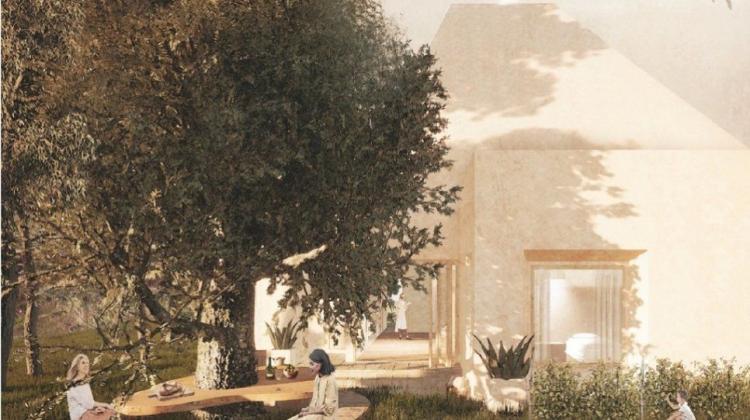Wrocław students wins international competition for futuristic housing estate design
Students from the Wrocław University of Science and Technology won the main prize in an international competition for housing estates of the future.
Students from over 30 universities in 11 countries took part in the Intuiture2075 competition, the main task of which was to design a self-sufficient housing estate for 150 housing units that could exist in 2075.
Participants also had to anticipate its gradual evolution, adapting the estate to the constantly changing needs of users, promote neighbourhood integration and technology development.
Wrocław’s winning team members were Maja Stankowska, Klaudia Ryś and Mateusz Baranowski from the Faculty of Architecture of the Wrocław University of Science and Technology, who prepared their concept under the supervision of Dr. Anna Miśniakiewicz. Their project was created as part of the 'Architecture Design - Environmentally Friendly Dwelling Architecture' course in graduate studies.
Stankowska said: ‘Our goal was to provide diverse, flexible, accessible and affordable spaces. We also decided to define the potential user of the estate and identify their most important needs, such as: a sense of security and privacy, education and integration between neighbours and a strong emphasis on the so-called +well being+ and mental health.’
The students' concept included revitalization of a historic building - a barn - located on a plot in Rędzin, one of Wrocław's housing estates, and designing services, workplaces and recreation places. All structures would be made of low-emission building materials.
According to Mateusz Baranowski, the greatest challenge was to reconcile many seemingly contradictory ideas. 'We wanted to combine tradition with modernity, create a sense of belonging to a given social group while ensuring privacy, and use ecological solutions, but at the same time comfortable and functional ones,’ he says.
The final concept assumes the division of the estate into three zones, containing: residential units supplemented with hostel rooms (co-living), terraced houses (co-housing) and detached single-family houses. In addition, there are three service centres with various functions: commercial, educational and agri-breeding, in which there are e.g. co-working zones, a community centre, orchards, vertical farms and permaculture crops.
For winning first place, the team from Wrocław University of Science and Technology received a cash prize of EUR 1,000.
PAP - Science in Poland, Agata Tomczyńska
ato/ bar/ kap/
tr. RL
Przed dodaniem komentarza prosimy o zapoznanie z Regulaminem forum serwisu Nauka w Polsce.


















